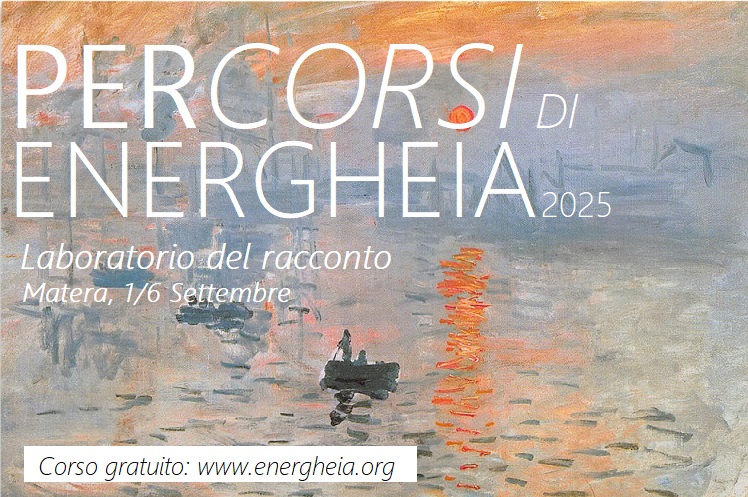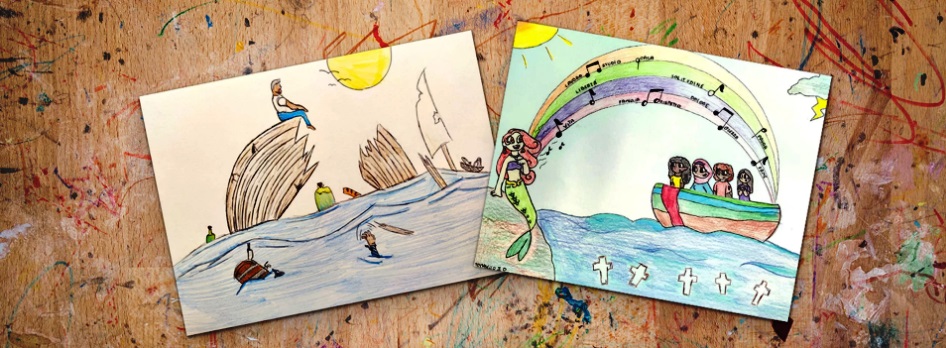Flower
Lily and Rose lived together in a small apartment overlooking the dirty part of the
river. It was the only thing either of them could afford really, as they both worked retail and
times were tough. The water was dirtier here because the town was upriver. Clinging to the
tendrils of weeping willows on the banks were branded paper cups, robust plastic straws,
faded milky way wrappers, sodden cigarette packets, brown bottles and odd socks. If they
squinted, and looked past the debris, they could believe in romanticised countryside. The
wildflower meadow was always just beyond the next hill.
Lily had moved in first. The day had been cold. Her breath had lingered in the air a
while after she crossed the threshold, but had disappeared by the time she called her mother.
She stood in the kitchen, surrounded by the house. The call lasted nine minutes and fourteen
seconds. She spent six minutes of it crying –– the pictures online had lied. Arguably,
predictably.
“I should have gone to the viewing,” she said.
“You should have gone to the viewing,” said her mother.
After she hung up, she pulled herself together and started cleaning. She scrubbed at
surfaces sticky with grime, wiped down the fridge, swept out the dust, attacked the dripping
mould in the corners and got rid of the yellow mushroom on the windowsill. Then, she took
out the flower press.
Rose moved in a week later. Rose had been to the viewing, but Rose was the kind of
person who, for too long, let dirty dishes sit in the sink and wet clothes sit in the washing
machine. It wasn’t her fault; she just had a lot on her mind.
They met in the kitchen. After the landlord had shared with them each other’s details,
they had exchanged a short series of messages online. Rose’s were brief – her use of
exclamation marks was not. Lily’s were tentative – too many ‘if that’s ok with you’s. Across
the wooden kitchen table, whose sticky grooves Lily had quickly covered with a white and
red checked tablecloth – the places were the lines crossed tinted pink – they observed the
creators of these messages.
“You’re not what I expected,” said Rose.
“You’re not what I expected,” said Lily.
And that was that.
They turned the apartment overlooking the dirty part of the river into a home. After
negotiations with the landlord, the walls were slathered with a fresh coat of paint. They
exchanged the grey, stoic furniture left behind by the previous tenants for second-hand wicker
pieces that smelled like honey. On the kitchen windowsill, they assembled a little herb
garden. They spent their days off rummaging through charity shops and hunting for bargains
in the January sales. Every surface of the house was covered with texture that soothed skin –
lush, green carpets on the floors; plump, fleece cushions on the couch; smoothened silk
bedspreads on the beds and woven tapestries on the walls. Rose didn’t leave her dirty dishes
in the sink for quite as long. Lily learnt to let go a little.
As winter turned to spring, the sun’s rays travelled from room to room throughout the
day, and they followed, moving from chair to floor to couch to bed. Rose especially was
prone to falling asleep on the ground during long Sunday afternoons, when the living room
was filled with light, cheeks pressed into the soft, warmed carpets. She was near impossible
to wake. Lily regularly placed whatever flower or weed that grew on the riverbank in a vase.
The place adopted the subtle coconut scent of gorse.
One year and five months later, Lily got offered a promotion at work. The role would
mean moving to the other side of the country. She spent two sleepless nights sitting at the
kitchen table, watching the river glisten in the moonlight between two sections of curtain. She
called her mother five times, after which she decided to take the job.
It had been about this time last year, after a slow and indulgent weekend morning
together, whisking blueberries into pancake batter, dipping strawberries into chocolate,
pouring prosecco into orange juice, that they had lain in comfortable silence on the same side
of the couch.
“I love you a lot,” Lily had said.
“I love you, a lot,” Rose had said.
Lily had switched on the television.
It was Sunday afternoon. Rose stayed home to help her pack. Lily showed her how to
use the flower press. She had taken it apart and stowed it under the bed after moving in.
Now, they sat on the green, carpeted floor and reassembled the giant contraption piece by
piece, slotting the wood together and carefully unrolling the wide expanses of cardboard
sheets and the layers of thin, absorbent sponge. Twisting on the screws, one at each corner.
They hung the sponge sheets out to air on the clothesline down by the riverbank.
They started in the kitchen. The kettle was Lily’s, as was the toaster, three of the
plates, two of the bowls, three of the mugs, most of the cutlery and all of the wine glasses.
First, the top of the flower press was lifted off and left to lean against the wall. The wood was
dark, heavy and sour-smelling, inches thick. Then, the sponges were brought in from the
clothesline, and the thickest sheet of cardboard was coaxed over and down, onto the screws
that were attached to the base of the press. A layer of sponge followed. It would soak up the
excess, soak up the stress. The kettle was placed upright in the middle of the sponge. The
wine glasses, mugs and bowls were arranged in a worshipping arc around it. The toaster was
emptied of crumbs and placed alongside. That was layer one.
Another layer of sponge, another layer of cardboard, another layer of sponge. Then,
the cutlery and the plates – the jars and packets and rolls and bags and bottles and all of the
other various plastic, glass and paper containers. The red and white checked tablecloth that
was tinted pink where the lines crossed. That was the kitchen.
Next was the living room. Poky as it was, it managed to house an extensive range of
peculiar objects and various knick-knacks. Stones, shells, miniature animals, coloured glass,
tiny mirrors and stacks of books were arranged in neat rows on the coffee table, the TV stand,
on top of the lampshade and along the windowsill. Several large and leafy plants hovered
uncertainly over the couch.
Both stood silently in this room for a moment, taking it in – realising at the same time
that there really wasn’t much here to pack. Even after nearly 2 years, this was Rose, not Lily.
In the end, Lily stooped down, gathered a plant pot in her arms and laid it down on the flower
press. A few stray leaves dropped to the ground with a dry crinkle. Rose watched silently,
before following suit with the rest of the plants.
The bathroom was next. More plants, mostly succulents that had claimed their place
on the ledge below the mirror, and in the corner next to the shower. They were all arranged on
top of the sponge layer, alongside bottles of shampoos, lotions, conditioners, hair products,
makeup supplies. Many, many compact mirrors. Once a sheet of the press had been filled
with a carefully spaced constellation of household debris, they lifted the next cardboard and.
sponge layers onto the press and began again, endlessly stacking, filling, stacking. With each
new layer, they screwed the press down tightly, watched the whole thing sink, contemplated
the substance of things.
The last two layers were reserved for the bedroom. The room had been empty and
lifeless – apart from the wiry spiders in its corners, that first day when Lily had moved in.
Now, they set about sucking the life from it once again. Rose got the stepladder and took
down the floral gauze curtains, opening the room up, unstitching its togetherness. The
mattress they pulled from the bed and heaved onto the press. The frame followed. Next were
the mirrors, the wall tapestries, the rug, the silk pillows, the desk, the wicker chair, the pale
wood of the wardrobe. Then, the clothes, the plants, the letters, some books, the seeds, all the
seeds. Lily looked at her things and thought of limbs falling away from the body. Rose
thought of petals.
Once the bedroom was empty, they stood in the kitchen, looking down at the press.
“There’s nothing left?”, said Rose.
“There’s nothing left”, said Lily.
“I’m going to take a quick nap before the movers come”, said Rose. “If that’s ok with
you.”
The sun streamed into the living room, concentrating itself in a glowing corner of the
couch. The window was open to the river’s meditative rumble. Lily stood near it and watched
Rose’s sleeping figure reflected in the pane. She called the movers. Rose didn’t wake.
Lily made a decision. Rose didn’t wake. She dragged the couch through into the
kitchen. Rose didn’t wake. She squatted and gripped the underside, tilting it up, spilling her
down onto sponge. Rose didn’t wake. Tenderly, she slid another layer of absorbent sponge
overtop her. Smooth against skin. This was followed by a final layer of cardboard. Rose
didn’t wake. She lugged the top of the press over from where it had stood against the wall
and managed to heave it into place – pushing and pulling to line it up with the holes. Still,
Rose didn’t wake. She gathered the screws for each corner and started twisting, standing back
to watch the whole thing slowly sink –– contemplating the substance of things.





